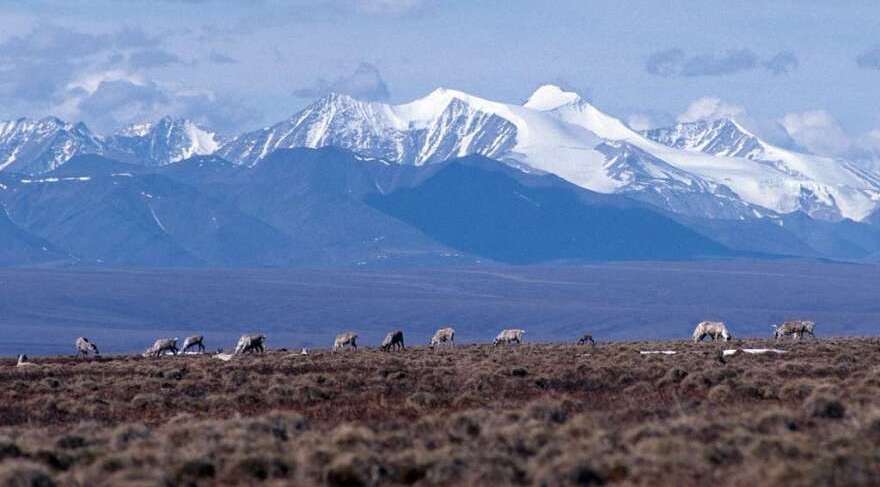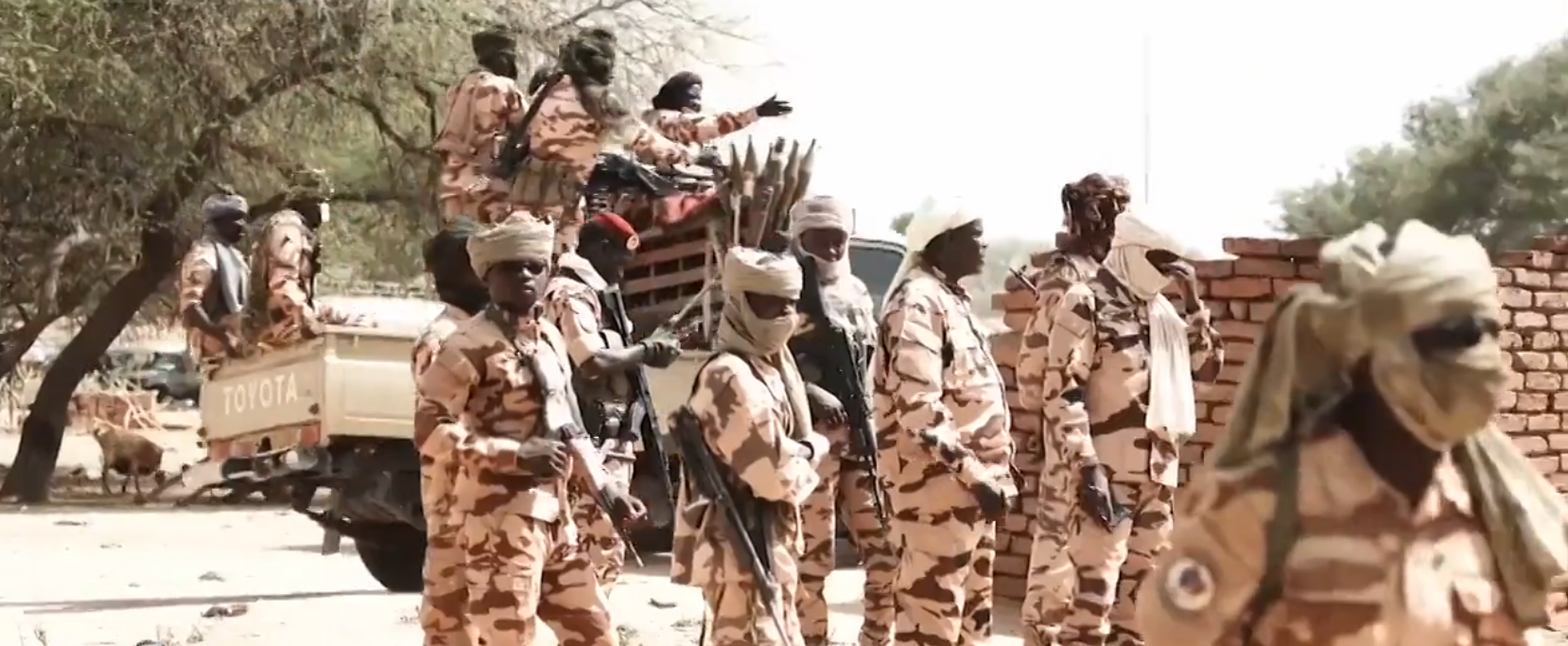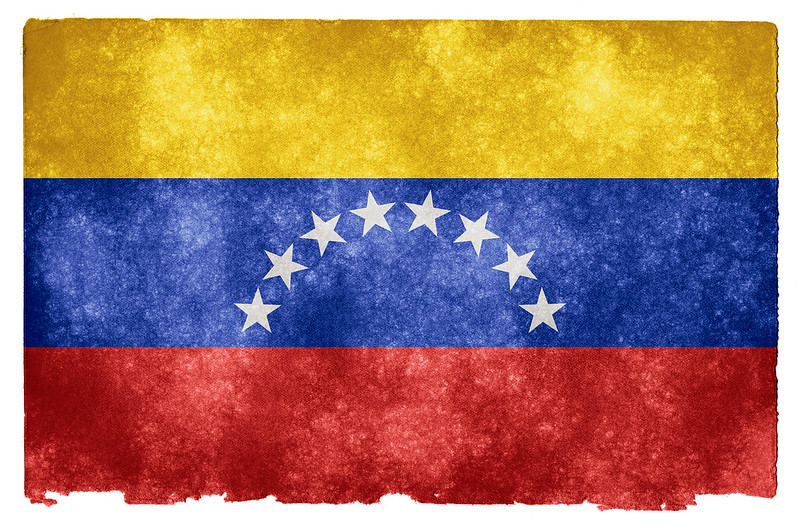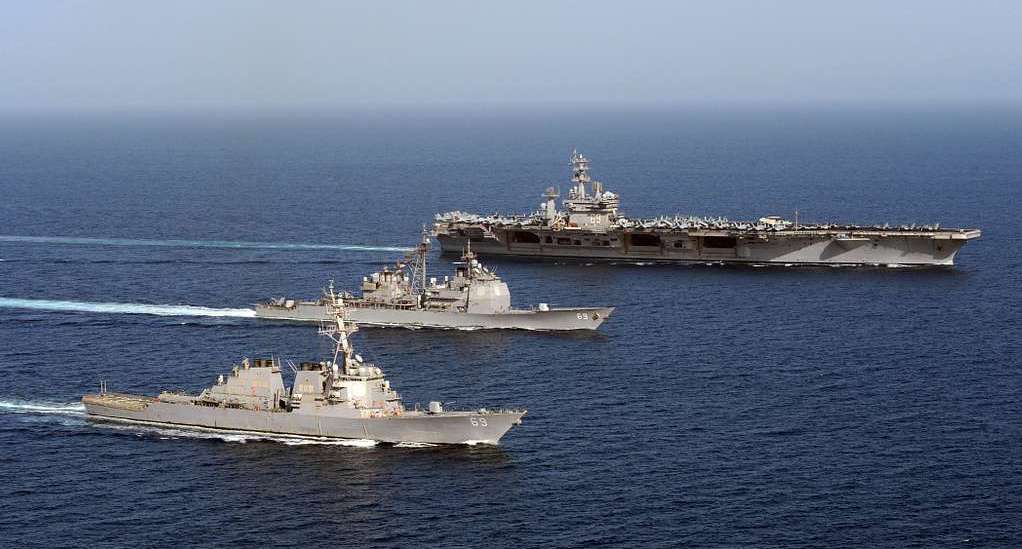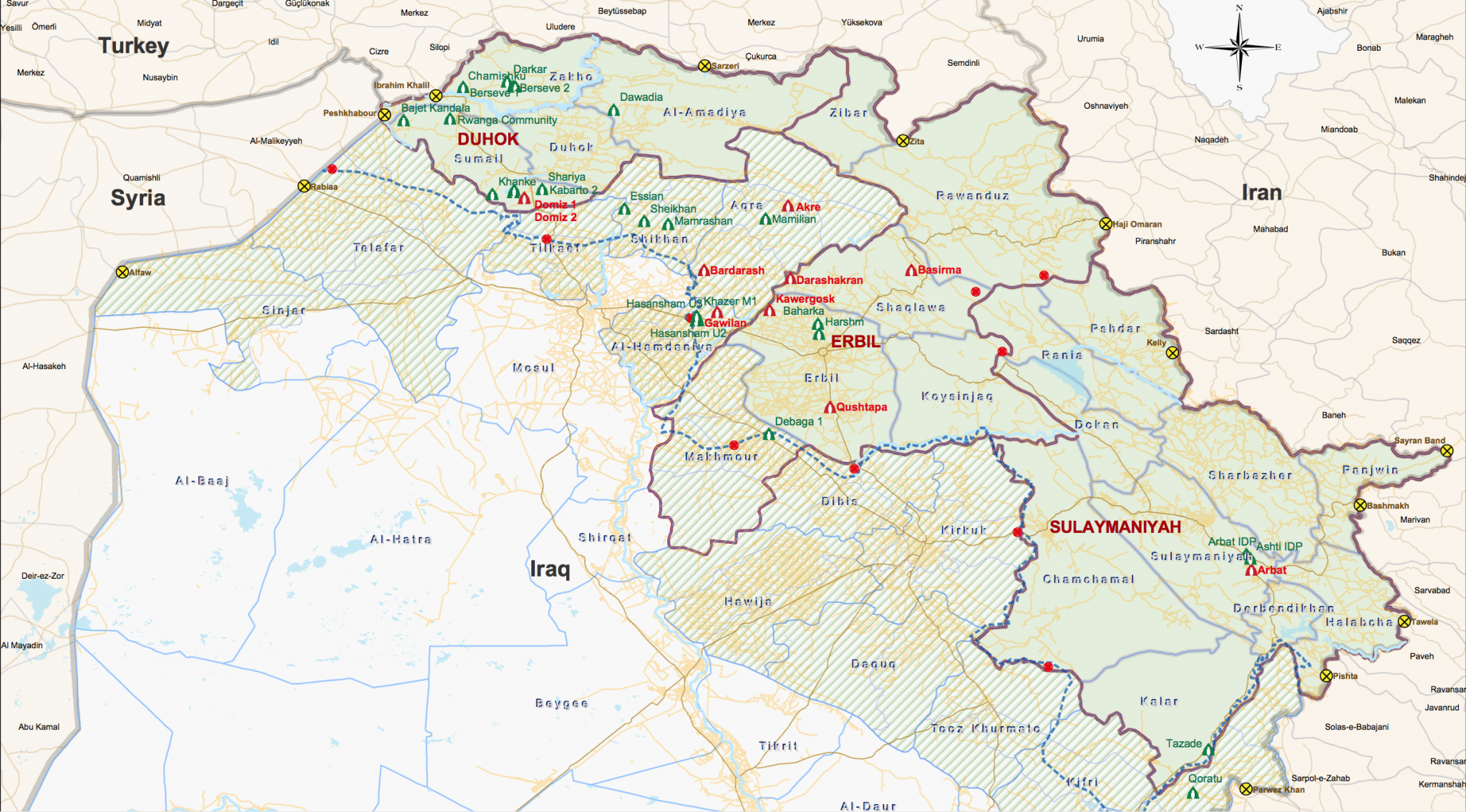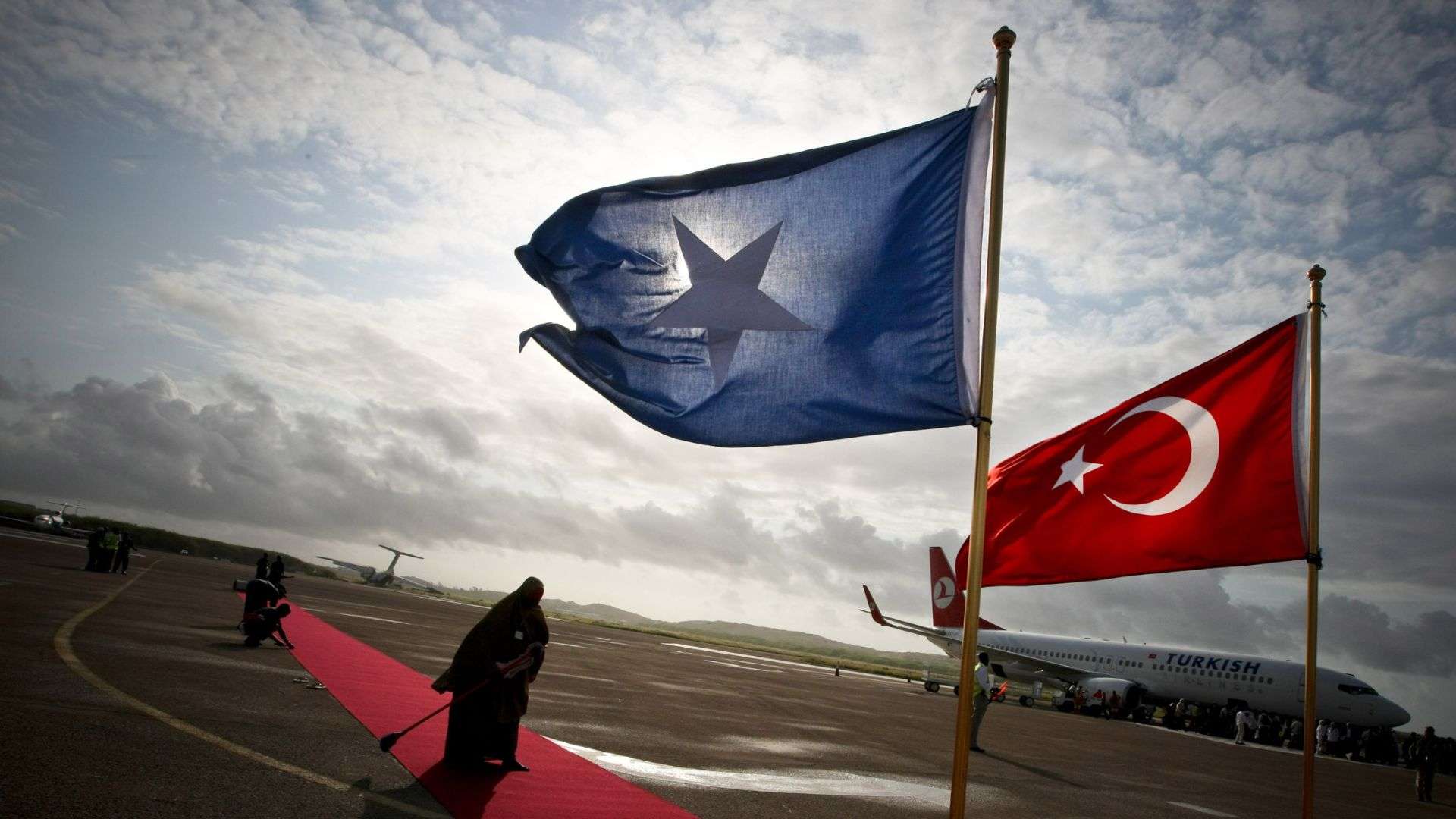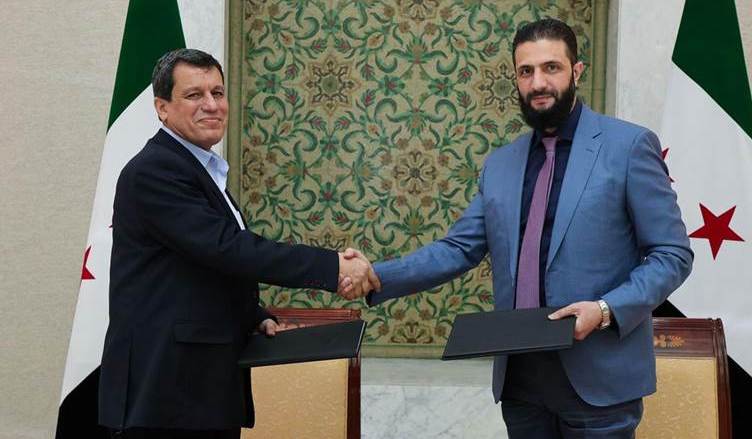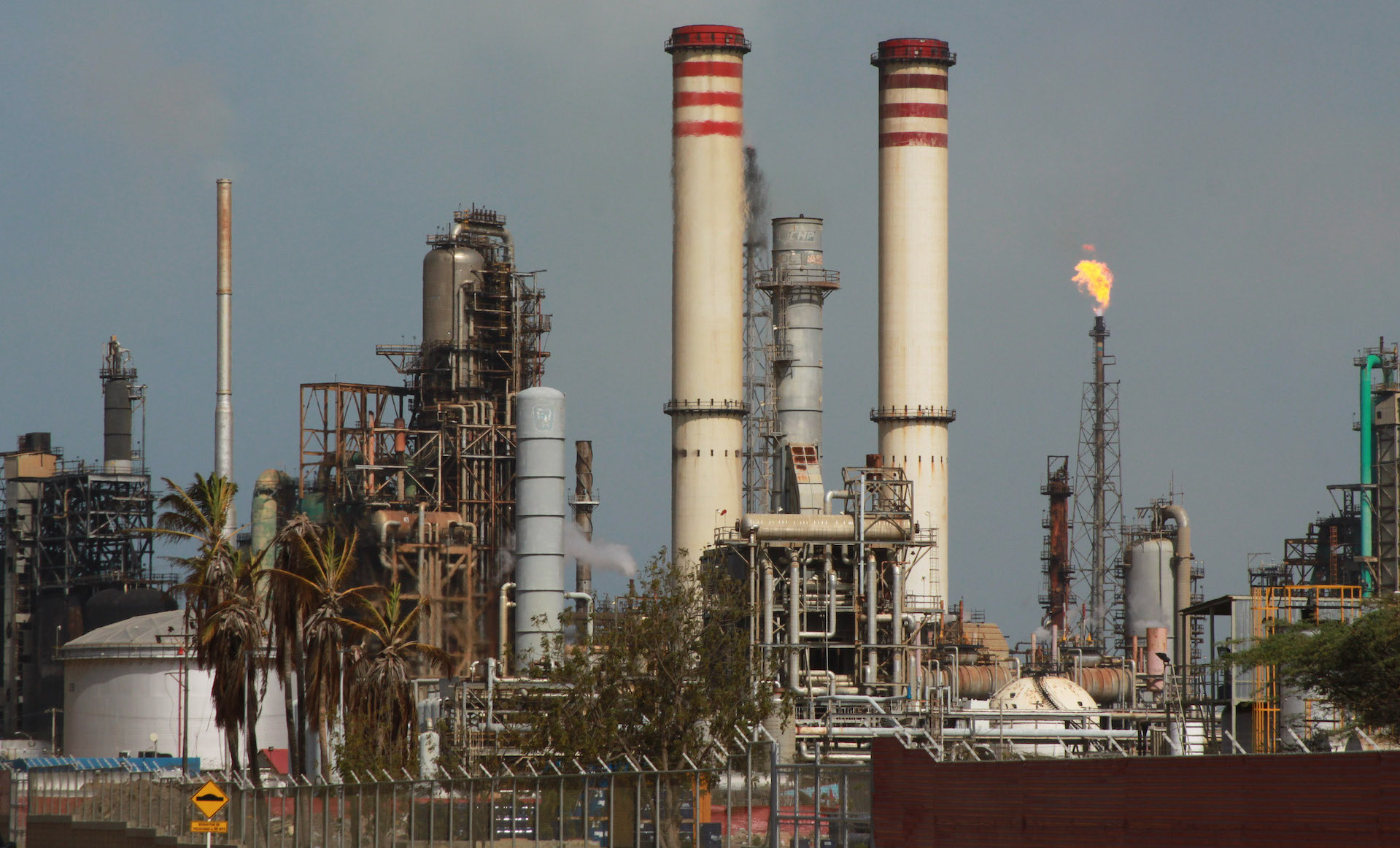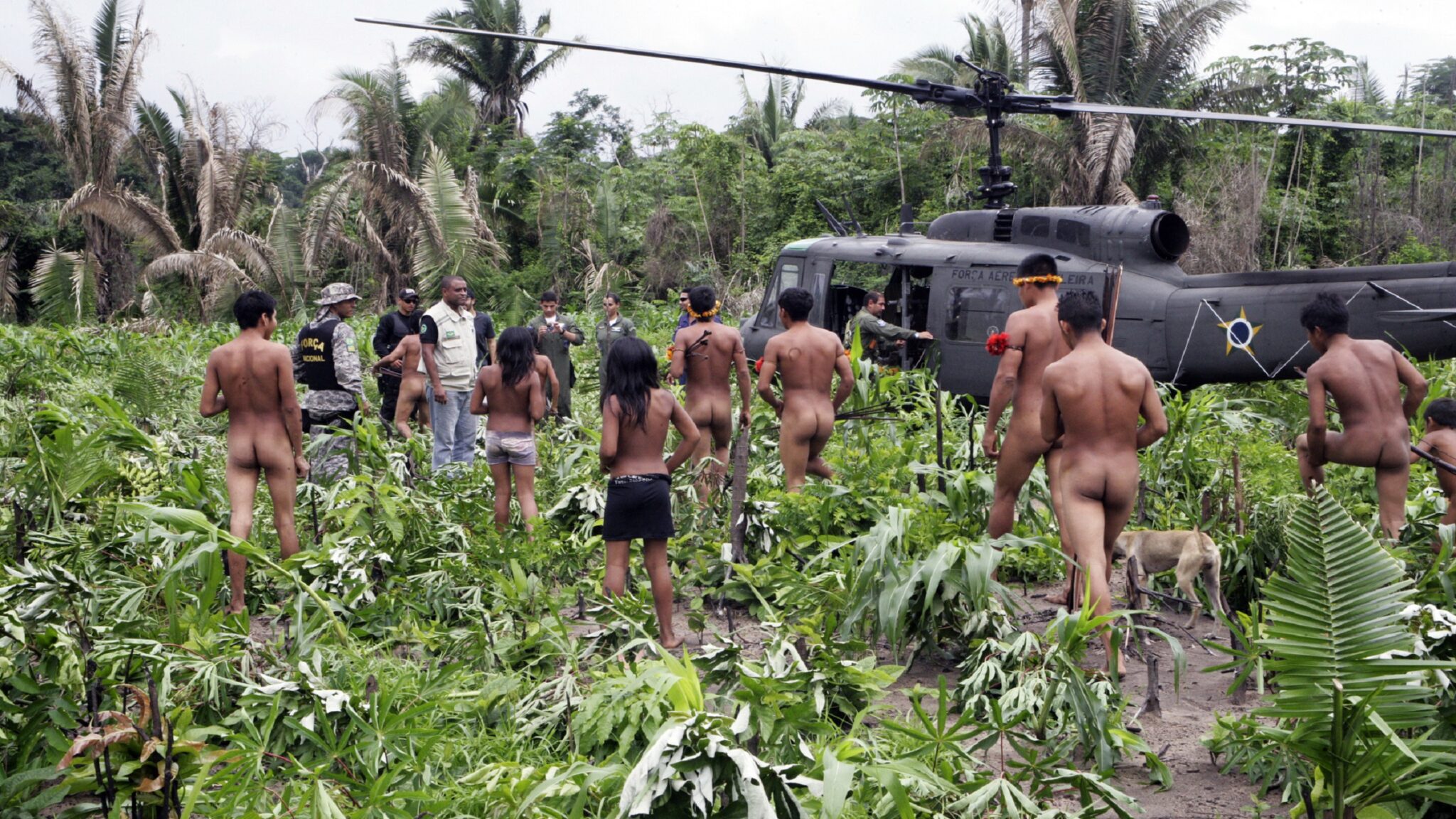
World’s ‘uncontacted’ peoples face imminent extermination
A comprehensive global report on “uncontacted” indigenous peoples published by UK-based Survival International estimates that the world still holds at least 196 uncontacted or isolated peoples living in 10 countries in South America, Southeast Asia and the Pacific region. Nine out of 10 of these groups face the threat of unwanted contact by extractive industries, including logging, mining and oil and gas drilling. It’s estimated that a quarter are threatened by agribusiness, with a third terrorized by criminal gangs. Intrusions by missionaries are a problem for one in six groups. After contact, indigenous groups are often decimated by illnesses, mainly influenza, for which they have little immunity. Survival International found that unless governments and private companies act to protect them, half of these groups could be wiped out within 10 years. (Photo: Brazil’s indigenous agency, FUNAI, makes contact with the Awá people in 2014. Credit: FUNAI via Mongabay)




